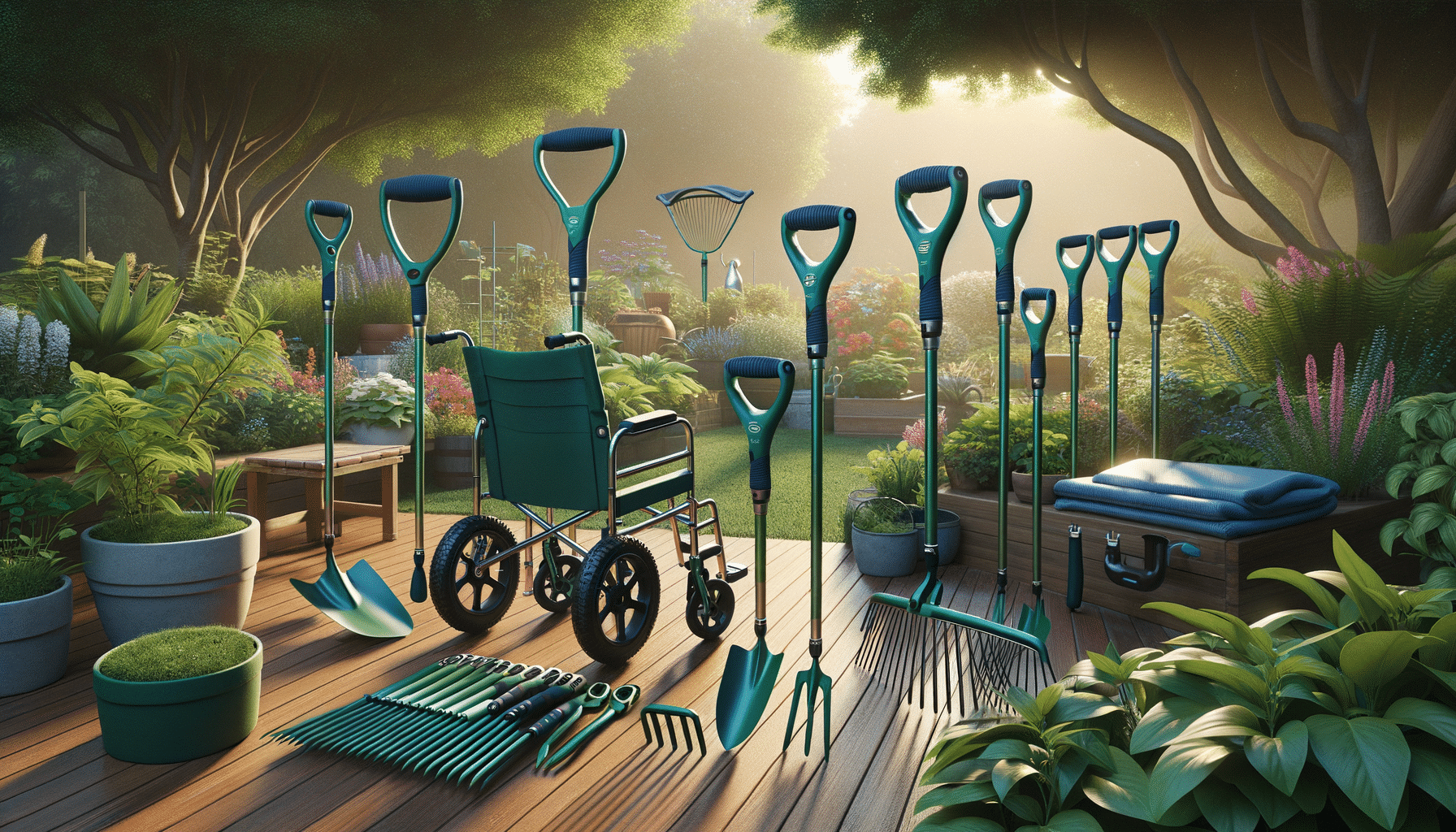
Adaptive Gardening for Seniors and People with Disabilities. Discover Tools That Actually Make a Difference.
Gardening for Seniors: Cultivating Health and Happiness
Gardening can be a rewarding activity, particularly for seniors, offering both physical and mental health benefits. As people age, maintaining an active lifestyle becomes crucial, and gardening serves as an excellent medium to achieve this. The act of tending to plants not only provides a moderate level of physical exercise but also promotes relaxation and reduces stress levels. According to a study published in the Journal of Health Psychology, gardening can improve mood and increase self-esteem.
For seniors, gardening can also foster a sense of purpose and accomplishment. Growing and nurturing plants allows individuals to witness the fruits of their labor, which can be deeply satisfying. Furthermore, the responsibility of caring for living things can be both motivating and fulfilling. The sensory experience of gardening—feeling the soil, smelling the flowers, and seeing the vibrant colors—can also enhance cognitive function and memory.
However, as mobility decreases with age, certain modifications may be necessary to ensure safety and comfort. Raised garden beds, for instance, can reduce the need for bending and kneeling, making gardening more accessible. Additionally, choosing lightweight tools with ergonomic handles can minimize strain on joints and muscles. Community gardens and local gardening clubs often provide resources and support for seniors looking to engage in this delightful activity.
Long Handled Garden Tools for the Elderly: Extending Reach and Comfort
As seniors continue to enjoy the benefits of gardening, the right tools can make all the difference. Long handled garden tools are particularly advantageous for the elderly, as they allow for extended reach without the need for bending or stretching. These tools are designed to provide comfort and ease of use, which is essential for seniors who may have limited mobility or strength.
Long handled tools come in various forms, including trowels, hoes, and pruners. These tools are typically lightweight, yet sturdy enough to perform a range of gardening tasks. The extended handles help reduce the need to bend over or kneel, which can be particularly beneficial for those with back or knee issues. Additionally, many of these tools feature ergonomic grips that are easy to hold, reducing strain on hands and wrists.
When selecting long handled tools, it’s important to consider the material and design. Aluminum or fiberglass handles are often preferred for their light weight and durability. Tools with adjustable handles can also be a great choice, allowing users to customize the length to suit their needs. By investing in well-designed long handled tools, seniors can continue to enjoy gardening comfortably and safely.
Adaptive Gardening Tools for the Disabled: Enabling Independence
Gardening should be an inclusive activity, accessible to everyone regardless of physical ability. Adaptive gardening tools are designed to empower individuals with disabilities, enabling them to garden independently and confidently. These tools are tailored to accommodate various physical limitations, ensuring that everyone can participate in the joys of gardening.
Adaptive tools often feature unique designs that cater to specific needs. For example, tools with loop handles can be easier to grip for individuals with limited hand function. Some tools are equipped with arm supports or wrist cuffs to provide additional stability and control. Additionally, tools with lightweight materials and ergonomic designs can help reduce fatigue and strain during use.
Beyond individual tools, adaptive gardening also involves creating an accessible garden environment. Raised beds, vertical gardens, and container gardening can all be adapted to suit different abilities. By combining the right tools with thoughtful garden design, individuals with disabilities can enjoy gardening as a therapeutic and rewarding activity.


